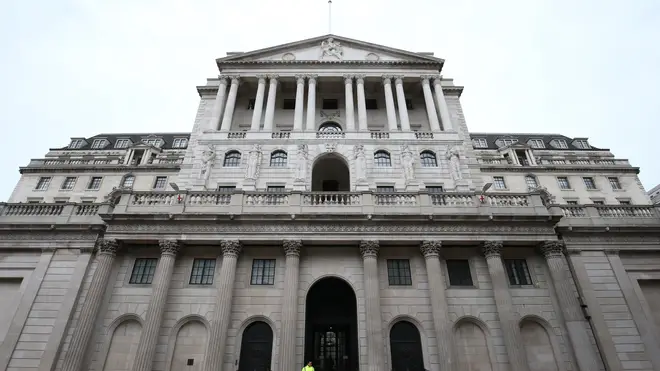
Ali Miraj 12pm - 3pm
13 September 2020, 09:04

The UK is expected to bounce back sharply in the third quarter after the eye-watering 20.4% contraction seen between April and June.
The Bank of England is expected to leave interest rates on hold at the historic low of 0.1% on Thursday as the economy accelerates out of the record recession caused by the Covid-19 lockdown.
But the latest decision by the Bank’s Monetary Policy Committee (MPC) comes as worries mount over mass unemployment and long-term economic scarring from the pandemic once Government support schemes end.
The UK is expected to rebound sharply in the third quarter after the eye-watering 20.4% contraction seen between April and June.

It marked the biggest second quarter slump of any major global economy and plunged the UK into a historic recession, following the contraction in the first three months of the year.
Gross domestic product (GDP) has recovered strongly since the nadir of the recession in April, with the latest official figures on Friday showing growth of 6.6% in July.
While down from the 8.7% recorded in June, it still puts the UK on course for double digit growth in the third quarter, according to experts.
The Bank is therefore seen keeping rates unchanged in September and holding off from further increasing its £745 billion quantitative easing programme.
Howard Archer, chief economic adviser to the EY Item Club, is predicting third quarter growth of around 15% and said, together with the Chancellor’s support measures, “there seems little need for further MPC stimulus action – for the time being at least”.
But despite three months of growth, the economy is still 11.7% below pre-virus levels.
And there are concerns the pandemic will have long-lasting effects, in particular with mass job losses expected once the Government’s furlough scheme ends on October 31.
Bank Governor Andrew Bailey said recently confirmed he expects the pandemic to permanently scar the economy by reducing GDP by 1.5%, while deputy governor Sir David Ramsden warned it could be even worse.
With growth set to slow in the fourth quarter, however, and the end of year Brexit deal deadline approaching, experts said policymakers will be standing ready to take further action if needed.
Investec economist George Brown said the September MPC meeting is likely to be a “staging post for further easing”.
He is predicting another £75 billion of QE once the current round finishes at the year end.
The Bank is also reviewing the case for negative interest rates, given that rates are already at rock bottom and it has few other tools in its monetary policy toolkit.
“We suspect that the MPC will maintain the view that such a move is not in the best interests of the UK economy,” according to Mr Archer.